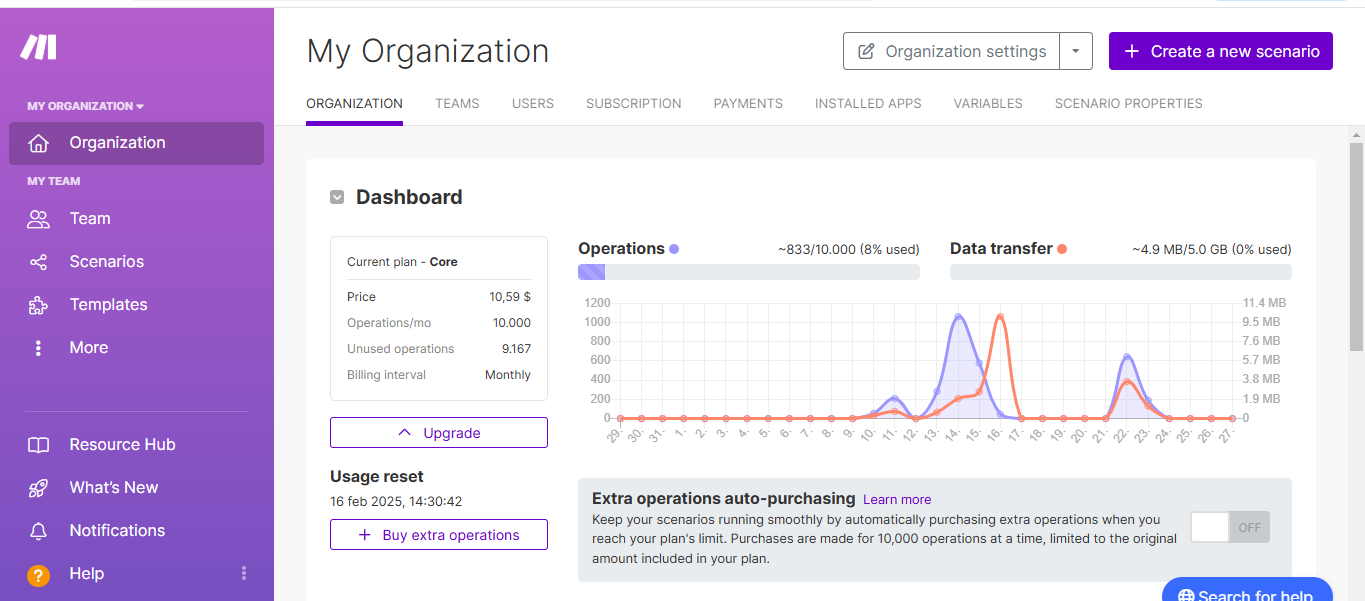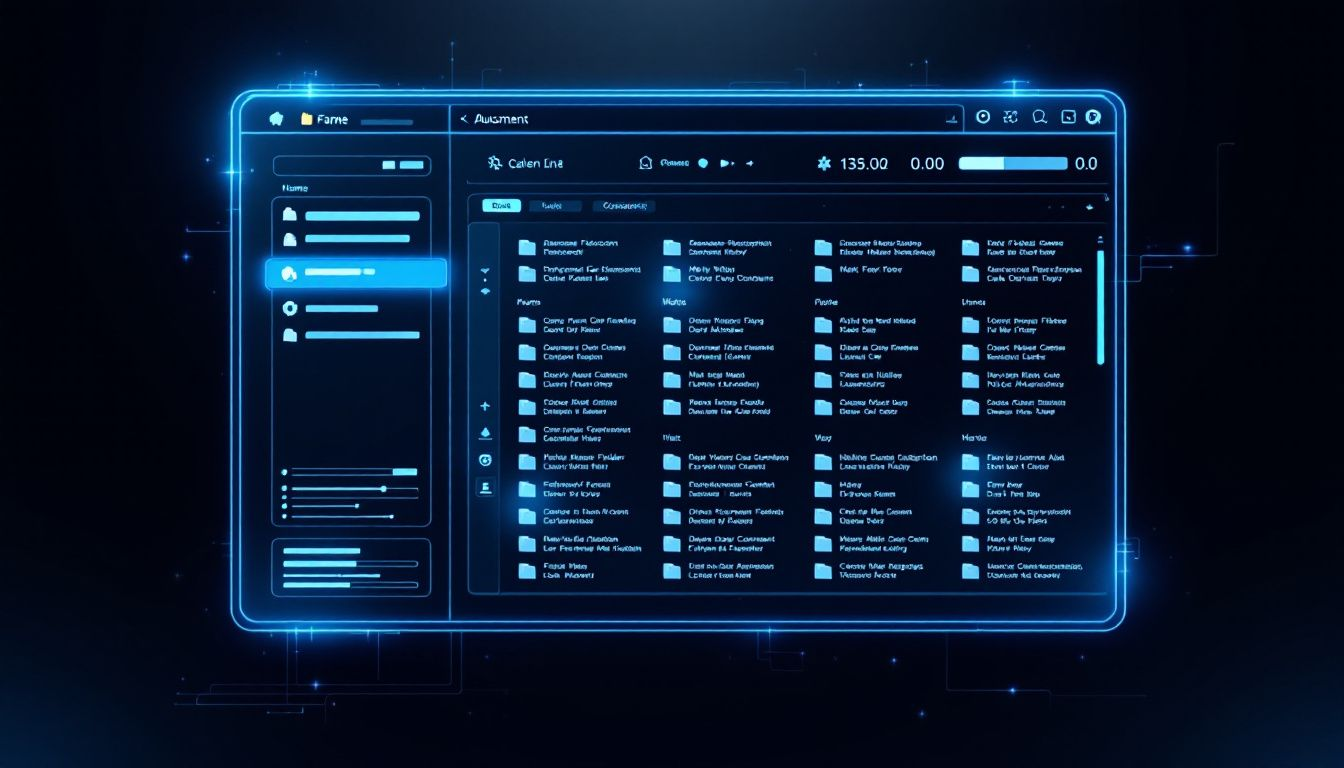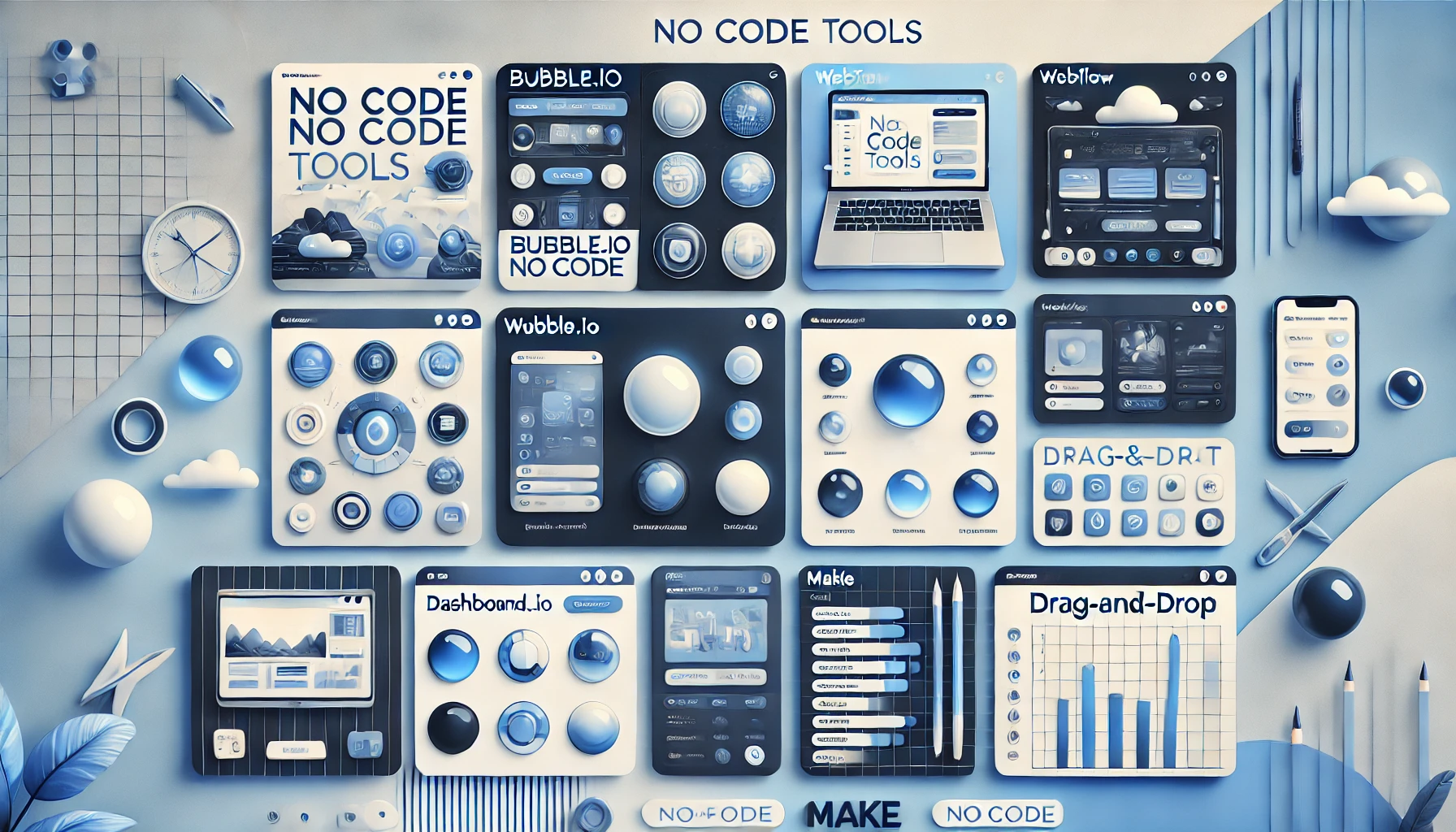
.png)
Legal Process Automation: Streamlining Document Management with NoCode
Published on January 24, 2025
By Sandra Zarate . 14 minute read
This article provides an insightful introduction to how Kreante Agency successfully automated document creation for a legal client using NoCode, with Make tool. Discover the transformative impact of automation on legal document management, showcasing how Kreante leveraged Make to streamline processes and enhance efficiency. Additionally, the article delves into the broader potential of automation tools like Make across diverse industries, showcasing their adaptability and the benefits of integrating automation into various aspects of business operations.
Case Study: Kreante's Legal Document Automation Solution

Kreante’s legal document automation solution has revolutionized the way lawyers manage their documents, streamlining workflows, reducing manual effort, and enhancing overall efficiency with precision and ease. Leveraging tools like Make, Google Sheets, and App Script, the solution automated the creation of multiple legal documents, reducing the time, effort, and manual input required for document creation. This innovative approach enabled the generation of five different documents from a single form submission, showcasing the power and efficiency of NoCode and Low Code solutions.
Kreante’s solution had a transformative impact, redefining efficiency and setting a new standard for streamlined legal document management. It not only saved a considerable amount of time but also reduced costs for end clients, making legal services more accessible and affordable. The automated workflows ensured that data was managed accurately and efficiently, eliminating the need for repetitive and error-prone manual tasks. Kreante’s expertise in creating complex automations allowed them to maintain data accuracy while significantly reducing operational costs.
This case study demonstrates the potential of document automation platforms to revolutionize legal services and beyond. By automating the creation of essential documents, Kreante has showcased how businesses can optimize workflows, boost efficiency, and deliver better services to their clients with greater speed and accuracy.
The Power of Document Automation with Make: Key Benefits for Our Client

The benefits of document automation with Make for our client, a lawyer dealing with extensive document management, are substantial. Faced with the challenge of creating over five documents per client, each filled with complex legal information, we proposed a solution through automation. By leveraging Make, we developed automated workflows that generate all necessary documents when a client submits their information via a form. This process, carried out in a secure environment, involves generating a personalized Google Sheet containing all client data and seamlessly creating five tailored documents with precision and efficiency.
The automation ensures seamless data integration across documents. For instance, data appearing in a Google Sheet is automatically reflected in related documents. We utilized App Script to create web apps, integrated with Make, to execute these tasks automatically via webhooks. This robust automation not only saves the client several hours of manual work but also reduces service costs, a crucial factor for their end clients, who often lack resources and need affordable legal solutions to manage debts.
The system is designed to be low-cost yet highly efficient, providing significant savings for the lawyer's clients. This approach ensures that legal services remain accessible and affordable for those who need them most, demonstrating the transformative impact of document automation in the legal industry.
A Deep Dive into Our Client's Document Automation Journey
Our client's document automation journey begins with the creation of document templates, which serve as the blueprint for generating consistent and well-structured documents. These templates ensure that all essential elements are included and formatted uniformly. The complexity of the documents often dictates the choice of tools and integrations needed. Depending on the client's requirements, it's crucial to identify the necessary tools for integration, such as databases and other workflow connections. Document automation goes beyond merely creating a template; it involves the integration of content: standard text with complex tables and personalized elements, significantly enhancing the workflow's complexity.
The document automation process comprises several key steps to ensure efficient document creation. It starts with a trigger to activate the workflow. Make's advanced automation platform empowers our client with flexible trigger options, seamlessly initiating workflows through custom webhooks or dynamic form submissions in real-time. Once the trigger is set, the workflow is constructed with the necessary modules. Decisions need to be made regarding the document format, whether it will be a DOC template or a Google Sheet. After assembling the workflow, it's important to determine where the documents will be stored, such as Google Drive or a database like Airtable, ensuring that the generated documents are organized and easily accessible.
Each phase serves as a critical quality checkpoint, guaranteeing that final documents meet rigorous accuracy standards and deliver immediate business value. The more personalized the document is, the more complex the workflow becomes, often requiring tools like App Script and LowCode solutions to manage the workflow in Make. This comprehensive approach ensures that our client can efficiently generate documents, reducing manual work, minimizing errors, and enhancing overall productivity. Ultimately, the complexity of the document dictates the complexity of the automation process, highlighting the need for a tailored approach to meet specific document requirements.
Document Automation: From Templates to Transformative Workflows

Document automation is a powerful process that enables the creation of documents at scale using defined rules and templates. However, not everything is just about templates. Depending on the complexity of the documents, it's crucial to design a robust workflow to ensure efficiency and accuracy. Document automation software leverages these workflows to generate documents automatically, eliminating the need for manual tasks and reducing errors. This technology is particularly beneficial in legal technology, where it can automatically create various legal documents through predefined templates, ensuring consistency and accuracy.
By integrating structured workflows with templates, document automation platforms enable organizations to efficiently generate business documents, legal documents, and other types of paperwork, transforming document management workflows.
Key Features of Document Automation with Make

Make is a versatile NoCode tool that excels in document automation, offering a range of key features that enhance efficiency and accuracy in document workflows. One standout feature is its centralized library of templates, ensuring consistent branding and document elements across all communications. Users can create templates by uploading a Word document or building documents directly within Make, providing flexibility and ease of use.
Another critical feature of Make is its robust data integration capabilities. It allows data to be aggregated from various sources, including customer portals, databases, and CRM systems, through embedded interfaces. This integration automates workflows by pulling data from CRM, HR, forms, and online databases, ensuring that only the most current and approved versions of documents are used.
Make also focuses on reducing errors by minimizing mistakes associated with manual data entry, thereby enhancing overall document quality. Its intuitive interface and powerful automation capabilities make it an ideal choice for businesses looking to streamline their document management processes efficiently.
How Document Automation is Transforming Industries?
Document automation is not limited to a single industry; it has far-reaching applications across various sectors. Industries such as retail, banking, and healthcare are significantly adopting document automation to enhance efficiency and customer interaction.
Thanks to document automation platforms, these industries can streamline document workflows and boost overall productivity.
Legal Services
In the legal sector, document automation plays a crucial role in automating contract creation and review, enhancing matter management, and ensuring compliance. Legal teams can leverage document automation to quickly generate a variety of legal documents, improving workflow and client service. For example, Kreante’s implementation of a legal document automation solution significantly reduced processing times for case files by automating the intake and filing processes.
Document automation software automatically fills in correct document variables based on transaction data, streamlining the documentation process. This ensures that legal teams can efficiently create and manage documents manually, reducing the time and effort required for manual document creation and enhancing overall productivity.
HR Departments
Human Resources departments also benefit greatly from document automation. Implementing automation for HR documents allows organizations to streamline the creation and management of employee-related paperwork. This includes automating processes such as employee onboarding, performance reviews, and compliance management, leading to more efficient HR operations. Discover how to improve your HR processes by exploring our comprehensive case study here.
Finance
In the finance sector, document automation is crucial for improving efficiency and accuracy in creating financial documents. For example, using Make, a finance team can automate the workflow of generating invoices. When a sale is recorded in the CRM system, Make can automatically pull the relevant data and populate an invoice template. This process significantly speeds up the creation of financial documents such as invoices and purchase orders, enabling finance teams to focus on more strategic tasks.
Automation helps financial organizations manage their documents more effectively, reducing the time and effort required for manual processes. This leads to improved accuracy and consistency in financial reporting, ensuring that all financial documents
Choosing the Right Document Automation Solution

Choosing the right document automation tool for your project is essential for optimizing workflows and ensuring seamless integration with your existing systems. A suitable tool should align with your specific document needs, whether for legal, HR, or financial purposes. Make stands out as a strong option due to its extensive integration capabilities, connecting with over 1,000 applications such as CRM, ERP, and HR systems. This flexibility allows for streamlined processes, reducing manual tasks and enhancing data accuracy. By opting for Make, organizations can improve efficiency and maintain compliance, making it a valuable choice for document management.
Regulatory Compliance and Document Automation
Regulatory compliance is a critical aspect of document management, and document automation solutions often include compliance tools to help organizations adhere to legal standards. Automating document processes reduces reliance on manual methods, which are often prone to errors and can lead to compliance failures. Utilizing document automation software helps organizations ensure compliance with regulatory requirements, reducing the risk of penalties.
Emerging technologies like blockchain promise to provide secure and immutable records for document processing, enhancing data integrity and further supporting regulatory compliance. This ensures that organizations can maintain accurate and compliant records, essential for legal and financial reporting.
Future Trends in Document Automation

The future of document automation is bright, with emerging technologies like artificial intelligence and machine learning transforming the landscape. Modern document automation solutions often integrate AI to enhance the automation process, enabling systems to learn from data and improve accuracy over time. This integration allows for more efficient document review and data extraction, recognizing patterns and specific information that would be challenging for manual processes.
Predictive analytics is another trend that will facilitate proactive document management, helping organizations anticipate needs and enhance efficiency. As these technologies continue to evolve, document automation will become even more powerful, enabling businesses to streamline their workflows and achieve greater productivity.
Summary
In conclusion, document automation is a transformative technology that offers numerous benefits for businesses across various industries. By automating document creation, organizations can save time, reduce errors, and improve overall efficiency. Kreante’s legal document automation solution is a prime example of how automation can revolutionize document management, making legal services more accessible and affordable. Utilizing Make as a NoCode tool further enhances this process by allowing seamless integration and automation of document workflows.
As we look to the future, the integration of AI and machine learning will further enhance document automation, enabling businesses to achieve even greater efficiency and accuracy. By embracing these technologies and tools like Make, organizations can streamline their workflows, improve productivity, and stay ahead in an increasingly competitive landscape.
Frequently Asked Questions
What do you mean by document automation?
Document automation means creating intelligent templates that enable you to produce accurate documents effortlessly and consistently. Embracing this process not only saves time but also leverages expert knowledge for better efficiency!
How does document automation save time?
Document automation significantly saves time by streamlining the document creation process, allowing for quicker first drafts and less effort on manual tasks. Embracing this technology can lead to a more efficient workflow and more time for what truly matters!
Which industries can benefit from document automation?
Document automation greatly benefits industries like legal services, HR, and finance, allowing them to streamline workflows and boost efficiency. Embracing this technology can lead to remarkable productivity gains!
How Can Kreante Agency Help You Transform Your Business?

Kreante is an Agency that excels in leveraging NoCode and Low Code solutions to revolutionize various aspects of business operations. While document automation is a significant part of our expertise, we also offer a wide range of automation services designed to enhance efficiency across different sectors. Our innovative solutions encompass process automation, data integration, and workflow optimization, tailored to meet the specific needs of industries such as legal, HR, finance, and beyond.
We pride ourselves on having a team of certified Make experts who are adept at crafting advanced automation solutions. By utilizing tools like Make, we provide comprehensive strategies that reduce manual tasks, minimize errors, and ensure compliance with regulatory standards. Our experts are dedicated to understanding your unique business challenges and delivering customized automation strategies that drive productivity and cost savings.
Whether it's streamlining document management, automating data entry, or integrating complex systems, Kreante's expertise can help you achieve greater operational efficiency and business growth.
Interested in transforming your business operations? Schedule a free call with us to explore how Kreante's automation solutions can help you to enhance your workflows.










